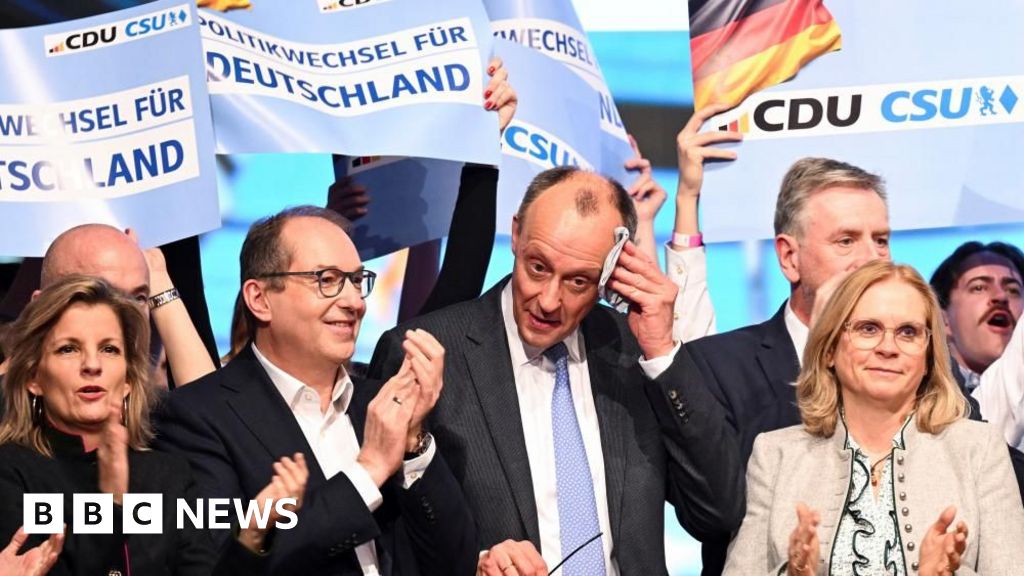German Election 2021: Implications For The Continent

Table of Contents
Germany's 2021 Election: A Seismic Shift with Far-Reaching European Implications
Berlin, Germany – The 2021 German federal election, held on September 26th, marked a turning point in German and European politics. While the election resulted in a continuation of the country's role as a key player in the European Union, the outcome significantly altered the domestic political landscape and presented new challenges and opportunities for the continent as a whole. The election saw the end of Angela Merkel's 16-year reign as Chancellor, an era defined by stability and pragmatism both domestically and within the EU. Her departure opened the door to a new coalition government and a potentially altered approach to European affairs.
The election produced a fragmented result, with no single party securing a majority. The center-right Christian Democratic Union/Christian Social Union (CDU/CSU), led by Armin Laschet, suffered a significant setback, securing only 24.1% of the vote – their worst result since 1949. The center-left Social Democratic Party (SPD), led by Olaf Scholz, emerged as the victor with 25.7% of the vote, a result that exceeded pre-election projections. The Greens, experiencing a surge in popularity, secured 14.8% of the vote, while the liberal Free Democratic Party (FDP) achieved 11.5%. The far-right Alternative for Germany (AfD) won 10.3%, maintaining their position in the Bundestag but failing to build on their previous gains. The Left Party (Die Linke) secured 4.9%, narrowly missing the 5% threshold for parliamentary representation.
This fragmented result necessitated protracted coalition negotiations. Ultimately, the SPD, Greens, and FDP formed a three-way coalition government, a "traffic light" coalition (referencing the parties' colors: red for SPD, green for Greens, and yellow for FDP). Olaf Scholz became Chancellor, leading a government with a markedly different ideological composition than the previous CDU/CSU-led administrations.
Implications for Europe:
The 2021 German election held significant implications for the European Union on several fronts:
-
Leadership in the EU: While Germany's commitment to the EU remained strong under the new coalition, the shift in leadership brought a subtle change in approach. Scholz, while generally pro-European, has exhibited a more cautious and less overtly interventionist style compared to Merkel. This might affect Germany's role in shaping EU policy, particularly on issues like fiscal integration and responses to major crises.
-
Climate Change Policy: The inclusion of the Greens in the governing coalition signaled a stronger push for ambitious climate action within Germany and, potentially, at the EU level. The new government committed to a faster phase-out of coal power and increased investments in renewable energy. This aligns with the EU's own Green Deal agenda, although the specifics of implementation might differ.
-
Franco-German Relations: The traditionally strong Franco-German relationship, the cornerstone of EU cooperation, faced a period of adjustment. While cooperation remained crucial, the change in German leadership necessitated a recalibration of working dynamics and approaches to joint projects.
-
Eastern European Relations: The new government’s approach towards Eastern European member states remains a key area to watch. While Germany’s commitment to the EU’s enlargement policy remains, the new coalition might adopt a more nuanced approach to concerns about rule of law and democratic backsliding in some Eastern European countries compared to Merkel’s government.
-
Defense and Security Policy: The election did not fundamentally change Germany's approach to defense and security, however, the increased focus on climate change and the growing recognition of the importance of cybersecurity within the new government might influence its foreign policy priorities. The war in Ukraine has forced a reevaluation of Germany's defense capabilities and its role in supporting Ukraine and its neighbors.
Conclusion:
The 2021 German federal election was not merely a change of government; it represented a shift in the country’s political trajectory and, consequently, its influence within the EU. The new coalition government, while committed to the European project, brought a different ideological mix and leadership style, leading to a period of adaptation and re-evaluation of priorities across the continent. The subsequent geopolitical shifts, particularly Russia’s invasion of Ukraine, further underscored the significant ramifications of the 2021 election and its lasting impact on Europe. The long-term consequences of this electoral shift continue to unfold and remain a subject of ongoing analysis.

Featured Posts
-
 Southampton 0 4 Brighton Mitoma And Pedro Seal Dominant Away Win
Feb 23, 2025
Southampton 0 4 Brighton Mitoma And Pedro Seal Dominant Away Win
Feb 23, 2025 -
 Analysis The Pressure Campaign Against Journalists Name
Feb 23, 2025
Analysis The Pressure Campaign Against Journalists Name
Feb 23, 2025 -
 Uk And Europe Must Do More On Ukraine Ex Army Chief
Feb 23, 2025
Uk And Europe Must Do More On Ukraine Ex Army Chief
Feb 23, 2025 -
 Attila Explained A Breakdown Of Severance Season 2 Episode 6
Feb 23, 2025
Attila Explained A Breakdown Of Severance Season 2 Episode 6
Feb 23, 2025 -
 Asensio And Rashford Lead Aston Villa To Victory Over Chelsea
Feb 23, 2025
Asensio And Rashford Lead Aston Villa To Victory Over Chelsea
Feb 23, 2025
Latest Posts
-
 U Conns Bueckers Shines In Win Against Butler
Feb 24, 2025
U Conns Bueckers Shines In Win Against Butler
Feb 24, 2025 -
 Only The Strong Survive Soul Singer Jerry Butler Passes Away At 85
Feb 24, 2025
Only The Strong Survive Soul Singer Jerry Butler Passes Away At 85
Feb 24, 2025 -
 Shiri Bibas Hostage Case Remains Arrive In Tel Aviv For Identification
Feb 24, 2025
Shiri Bibas Hostage Case Remains Arrive In Tel Aviv For Identification
Feb 24, 2025 -
 Perfect Weekend For Softball Team Now 4 0
Feb 24, 2025
Perfect Weekend For Softball Team Now 4 0
Feb 24, 2025 -
 Live Boxing Results Beterbiev Vs Bivol 2 Parker Vs Bakole And More
Feb 24, 2025
Live Boxing Results Beterbiev Vs Bivol 2 Parker Vs Bakole And More
Feb 24, 2025
